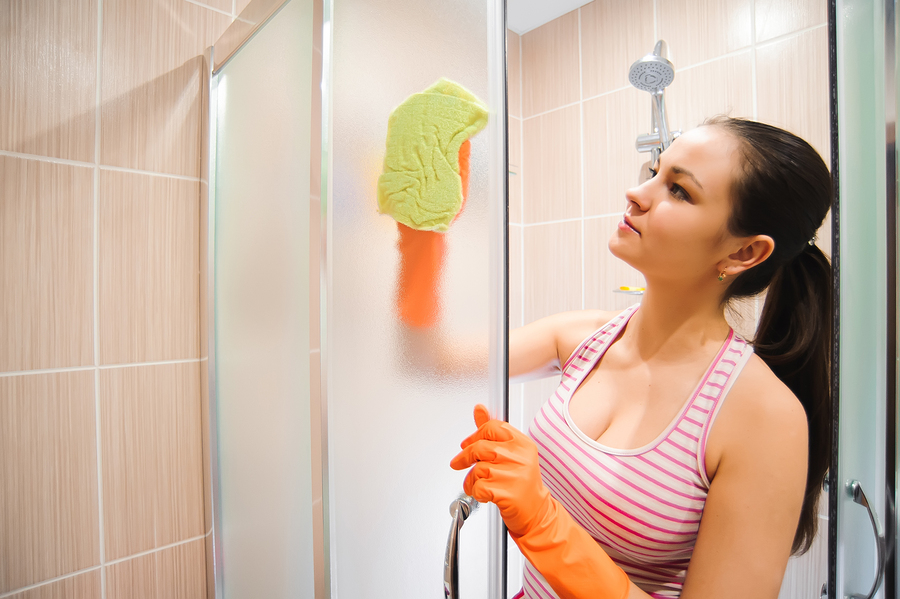A clean shower screen is the key to a spotless shower that looks, feels and smells fresh. It can be difficult to know how to clean a shower screen naturally without the use of harsh chemicals and toxins. Fortunately, there are several natural methods you can use to keep your shower screen looking its best.
In this article, we will look at how you can use simple household items such as baking soda, white vinegar and lemon juice to effectively clean your shower screen. We’ll discuss each method in detail so that you can easily find the one that works best for you.
Supplies Needed: Natural Ingredients
When it comes to cleaning your shower screen naturally, there are a few supplies and natural ingredients that you will need. Vinegar is essential. It is an amazing natural cleaner that can be used to remove soap scum from the glass surface of your shower screen. You will also need baking soda and lemon juice which are both great at cutting through grease and grime on the surface of your shower screen.
Other items you may want to include in your natural cleaning kit are rubbing alcohol and essential oils such as tea tree oil or eucalyptus oil. These two ingredients help to disinfect the surfaces while leaving behind a pleasant scent. You can also use white distilled vinegar or apple cider vinegar for even more natural cleaning power. If you want an extra boost in shine, try using some olive oil after you have completed the regular cleaning process.
Step 1: Preparing the Solution
The first step in cleaning a shower screen is preparing the cleaning solution. This will help to loosen grime and dirt from the surface of the screen, making it easier to clean. A natural solution suitable for cleaning a shower screen can be made using white vinegar and hot water.
Vinegar contains acetic acid, which is a strong disinfectant that effectively kills bacteria, mold and mildew. Start by mixing four parts of hot water with one part of white vinegar in a spray bottle or bowl. For added effectiveness, you can add ten drops of tea tree oil to the solution before use. Tea tree oil has antiseptic properties that help kill bacteria as well as imparting a pleasant smell to the mixture. Once your cleaning solution is prepared, you are ready to move.
Step 2: Scrubbing the Screen
First, create a paste of baking soda and water. Mix enough baking soda with water to make a thick paste that will stay on the surface of the shower screen. Apply this mixture to any areas that are particularly dirty or stained using a microfiber cloth or soft scrub brush.
Let the paste sit for 15 minutes before beginning to scrub gently in small circles. This will help break down dirt, grime and soap scum that has built up over time. Once you’re satisfied with your progress, rinse away any remaining residue with warm water and allow it to dry completely before moving onto Step 3: Buffing and Polishing.
Step 3: Rinsing and Drying
After scrubbing the surface with a natural cleaner, it’s important to thoroughly rinse off the soap with clean water. If a spray bottle is available, this can be used to get into hard-to-reach areas. For best results, use lukewarm water and wipe down each section of the shower screen until you are sure that all the soapy residue has been removed.
Once done, use an absorbent cloth or squeegee to dry off any excess moisture from the screen’s surface. Make sure to pay extra attention when drying around joints and hinges as any remaining moisture could lead to mould growth over time. Drying should take no more than 5 minutes; once complete your shower screen will sparkle like new!
Tips for Maintenance
Regular maintenance is an important part of keeping any shower screen clean and in good condition.
After each use, wipe down the glass with a microfiber cloth dampened with water to remove soap residue before it can build up. This will also prevent hard-water spots from forming on the glass surface. For tougher stains, a mild detergent mixed into the water can be used for extra cleaning power.
Periodically apply a store-bought cleaner specifically designed for shower screens. Most cleaners come in an easy spray bottle that can be sprayed directly onto the glass and wiped off with a microfiber cloth or sponge.
Benefits of Shower Screen Cleaning
Regularly cleaning your shower screen is important for keeping it looking sparkling and preventing the build-up of mould, mildew and other nasty deposits. Fortunately, there are plenty of natural cleaning solutions that can be used to get the job done without having to resort to harsh chemicals. Not only can they effectively clean off dirt and grime, but they also have a number of additional benefits.
One such benefit is that natural cleaners are much gentler on the environment than traditional chemical products. This means that you don’t need to worry about toxins entering your water system or polluting the air when you use them in your bathroom. Natural cleaners also tend to be much cheaper than their chemical counterparts, making them an economical choice for anyone who wants to keep their shower screen sparkling without breaking the bank.
Conclusion
Cleaning a shower screen naturally isn’t difficult and can be done at home with everyday items. With just white vinegar, baking soda, and lemon juice, you can clean your shower screen of soap residue and limescale without having to use harsh chemicals.
It’s important to remember to keep the cleaning solutions on the glass for several minutes before wiping them off, so that they have enough time to work their magic. Regular cleaning with natural ingredients will help keep your shower screen looking like new and help prevent future soap buildup. Try out these tips next time you need to give your shower screen a good scrubbing Read more
